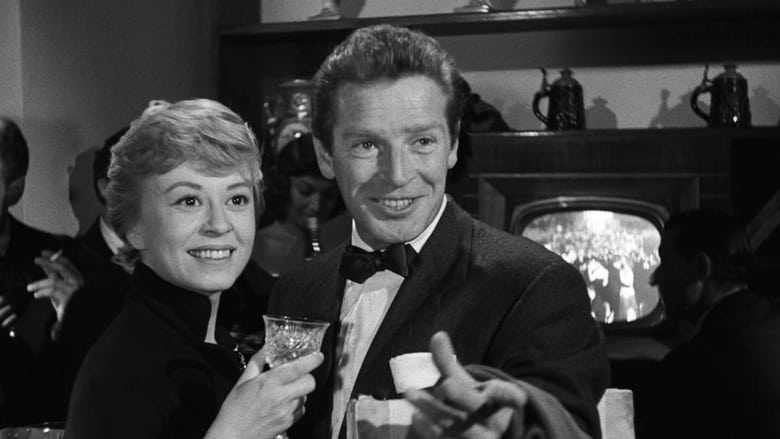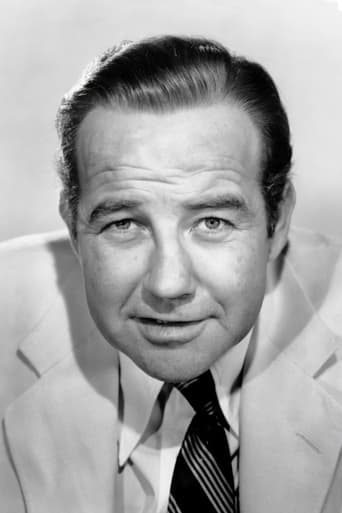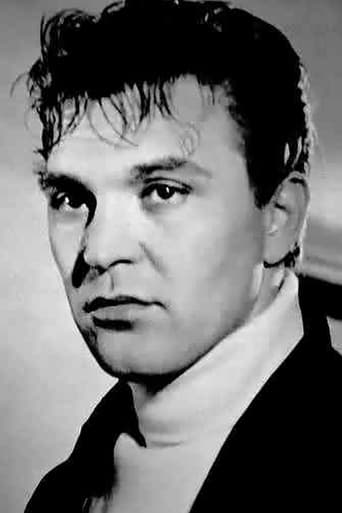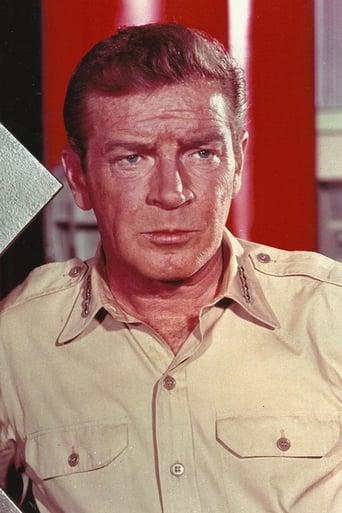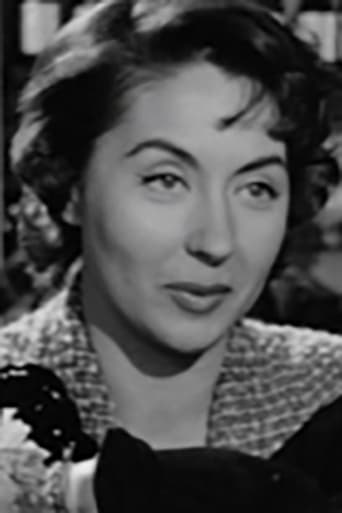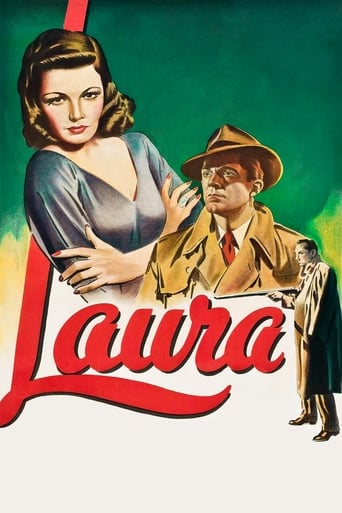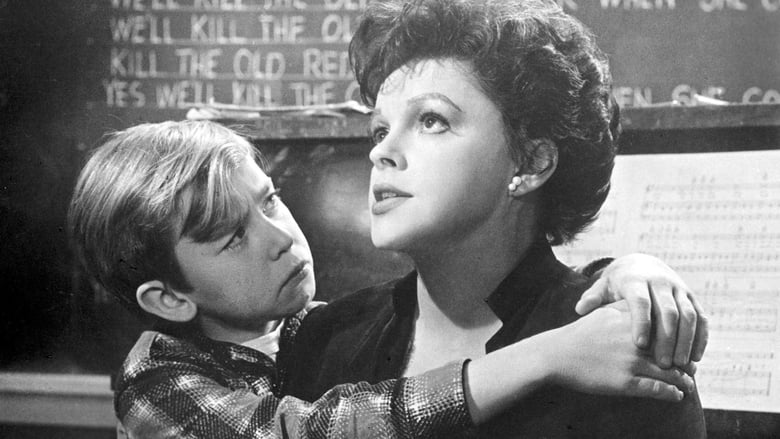Aging small-time conman Augusto works with two younger men: Roberto, who desires to become the Italian Johnny Ray, and Bruno, nicknamed Picasso. Through a series of mishaps and personal entanglements, things go badly for Augusto.


Similar titles
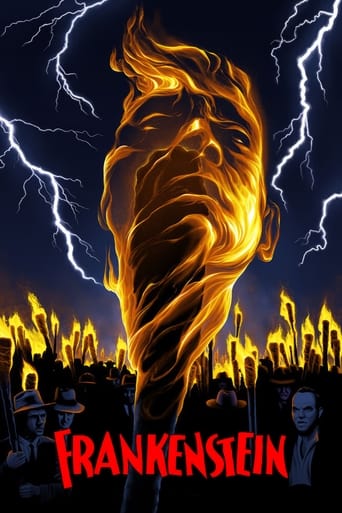

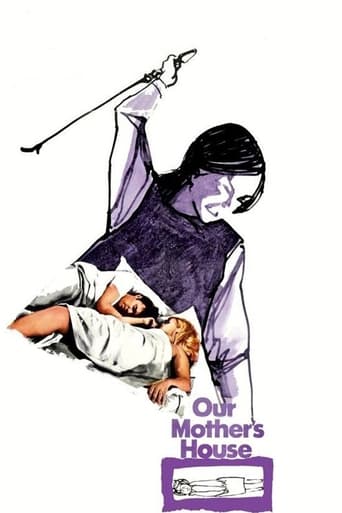
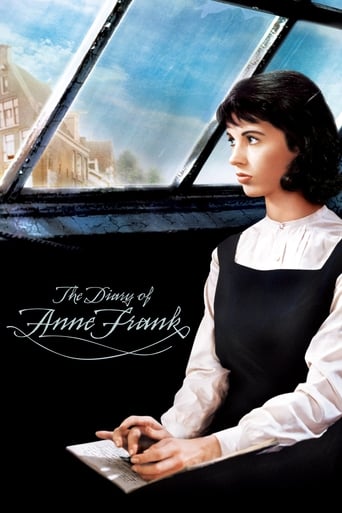
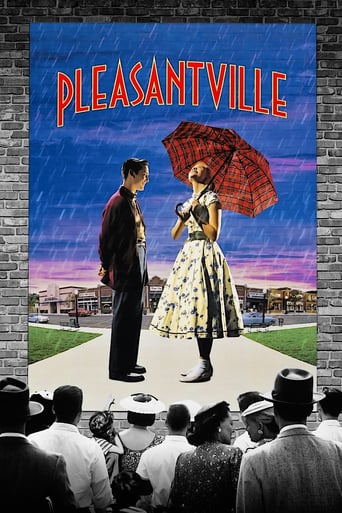
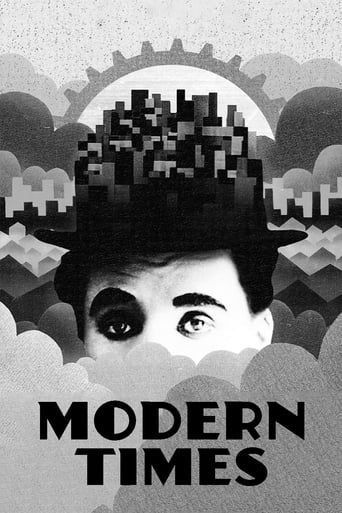
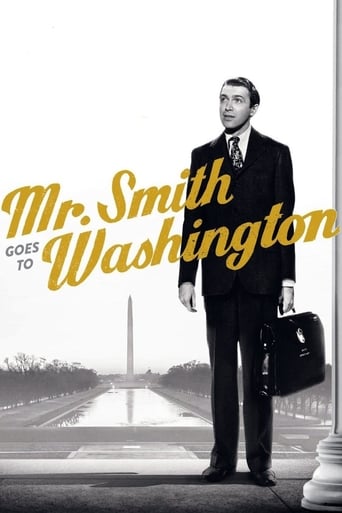
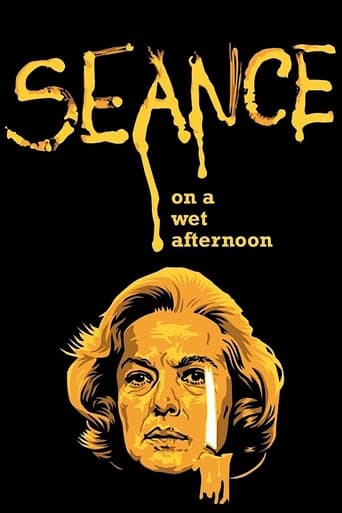

Reviews
After having seen La Strada I imagined that that one had to be the most depressing movie Fellini even did, but now I have to change my conclusion. That crown belongs to Il Bidone, a movie that will strike you like lightning, like a clenched fist violently hitting your chest. Just think: what can be worse than disappointing your loved ones, a wife, a daughter? And I'm not talking about not being as smart or courageous as they thought your were but a much worse kind of disappointment. Say, about bringing home good money every night, bragging about how good you are having it; taking them out to diner, giving them a little present from time to time, and then, when you least expect it, the sky comes crashing on you when someone in the crowd starts screaming at you and calling the cops; and there you are, being put away because you are a crook. Imagine the look the faces of that wife, girl, when that happens, when they finally realize who you really are. That's the kind of shock you'll experience watching this movie.Richard Basehart, Broderick Crawford and Franco Fabrizi play here three (very) small time crooks in postwar Italy. These are desperate times in the country. Italy has yet to recover from the destruction and social dislocation of the war and we see it here. Most people are barely scratching a living, in an arduous day to day struggle for survival, in cities or in the countryside, living in a utterly fragmented, dispersed and alienated society, one that has been set back decades, rather generations. Beyond a thin apparency of order and legality it's the law of the jungle that prevails. As it happened in postwar Germany, the awakening from the fascist dream has been brutal for the masses, which have been left to their own devices, to survive as they can in a world who's the opposite of that orderly, disciplined that Mussolini intended. It's within these social conditions that a new kind of crook appears: one who won't abide by any moral principle, who will be able to steal an accordion from a blind amputee or rob a paraplegic girl of her inheritance and who'll do it without feeling the least remorse, without even giving a second thought to it. People with absolutely no moral code.The film starts as a black comedy but it doesn't take long before turning into drama and then into tragedy. One of the favorite scams of this gang consists in disguising Crawford's Augusto as a Monseigneur and Basehart's Picasso as his subordinate. Then, chauffeured by Fabrizi's Roberto they drop in a visit to the property of some small landowner. They'll tell to him, her, that some crook confessed in his deathbed that he had buried some jewels in the property. "Monseigneur" will then read a letter where the repented crook leaves all the jewels to the owner of the land, to the condition that he, her, pays for 500 messes--for his soul. That makes for several hundred thousand lyres that the peasants will have get somewhere if they want the jewels. So the trio will take the money and leave, leaving behind worthless pieces of glass that an accomplice had buried earlier. Another scam they do is to go, posing as municipal big shots, to shantytowns where people is desperate for housing and then they'll put on a list all those who will pay them "the first installment" on their future home. Next we them celebrating, having a good time, completely oblivious of the pain and suffering they have caused to honest, innocent, people.But comeuppance arrive to these men in the most unusual way, maybe even worse than being shot dead or put away in a prison. Because they have loved ones too, at least Picasso and Augusto, and they have to live the moment when one's wife and the other's daughter realize who they really are. Normally people would be haunted for the rest of their life by that experience, but the most terrible thing about these men is that not even that seems to have any effect. If anything, it makes them even worse, at least Augusto. In the final episode he is faced to a girl in clutches whose inheritance he's about to rob and he seems actually affected by what she has to say to the Eminence she thinks he is ;we may even come to think he'll recant and give her money back, and so he tells his gang he did, later. But not so, he has tried to swindled them also, hiding the money in his shoes! Did he wanted it for his daughter? Don't think so. His death on the roadside, closing the film, is a fitting conclusion to what his life was.Don't look for beautiful sets or costumes here; for beautiful faces or for a slick plot story. This is an ugly, naturalistic, movie; one showing you human nature at his worst. Forget the cinematography or the direction--Fellini has probably given free reign to his actors anyway. There's a Rota score but I barely remember it, as I was riveted by the unfolding action, or rather by the behavior of these particular people, which may be also the behavior of many, if put in the same desperate situation, in the midst of a society which has lost all its moral compasses.BTW' Massina plays a rather small role here. In all, 7.5/0.
"Il Bidone" is the cinematic illustration of the middle-child syndrome, misunderstood and underrated, lost between two masterpieces. But I guess after a movie like "La Strada", the best way for Fellini to handle his immediate worldwide popularity was to surprise, to make something completely different, which, in my opinion, he successfully did. Now, let's go back to "Il Bidone", 'The Swindlers'.At first sight, "Il Bidone" starts a like the Italian version of "The Sting", it's about three men whose sordid business is swindling. The main character is Augusto, the veteran and leader who, after years of practice, got the expertise but not the spirit anymore. Broderick Crawford, who won an Oscar 6 years before for his gripping performance as Willie Stark in "All the King's Men", carries with his droopy tired-looking eyes, the tormenting weight of an ambiguous guilt. Is he bitter because he ruined people's lives or because he still has to do it when some others retired and are having the great life, like an old colleague, Rinaldo. The ambiguity is crucial to prevent us from falling into the trap and root for any of these guys, remember : pretending to be, is part of their job, so is their trustful look.Speaking of that, Augusto's second partner is Picasso, played by Richard Basehart who kept something of "La Strada"'s Fool in his performance. Smiling, generous, funny, you'd really believe anything that would come from this young angel-faced father, maybe the only alibi to justify how his wife, Guiletta Masina, in a smaller role, still trusts him. And there's Roberto, Franco Fabrizi, a solidly built blonde guy, whose joviality hides his totally unscrupulous nature, he's the happiest character because contrarily to his partners, he never feels guilty and is ironically the 'sincerest' of the bunch. The trio may look sympathetic but from the audience's view, despite the ingenious creativity displayed in their activities, like dressing up as Vatican clergy to cheat on poor peasants, or pretending to be government workers to take the money from homeless people, there's no comparison with "The Sting"'s con men.The trio is 'bad people' and Fellini trades all the extravagance and poetry of his previous films to create a powerful social commentary denouncing the inner injustices of the post-War Italian system. The contrast between the setting chosen for the business and the places were it is rewarded highlights this sad reality, I'm speaking of the famous New Year's Eve party in Rinaldo's house, a sequence that shows all the decadence and depravity planted on the ashes of so many burnt lives, and the smoke smell, sadly, doesn't seem to bother anyone. This part has the music, the musicians, the dance, but not Fellini's heart, we're not invited to join but to disdainfully observe the party. There, an interesting episode happens after Roberto steals a golden cigarette pack. Before he leaves, Rinaldo blocks him the way and cordially invites him to give it back, and pretend it was a joke not to lose face. Roberto finally resigns himself, literally spilling his humiliation over Augusto's reputation. But Roberto doesn't care.The film, somewhere loses its track in the middle, going in many directions when it should have focused on Augusto's character. Is he really losing his touch because he's gaining humanity? When his daughter discussed her future with him, he understands that she needs money. WHile this powerful moment could have enlightened Augusto about the value of earning money, in fact, in his rotten mind, he's already planning to help her, through a con. Providence sends him a warning when he is publicly recognized in front of his daughter, by an ex-victim. He spent some time in jail, and at his release, instead of starting a new life, he wants to end his career with a coup d'éclat, knowing that Roberto already surpassed him and is doing well in Milan. Roberto didn't care of being humiliated, neither did Augusto.Augusto replays the clergy trick and receives again an ultimate warning when a young peasant's daughter, polio-handicapped since the age of 9, seems smiling, full of life, and thanks God for what she got, unknowing his family is being cheated by men pretending to speak in the name of God. This scene works as an ultimate test for Augusto, to decide if he's got a conscience or not. I almost felt it was God warning Augusto, offering him a last chance of redemption. But Augusto failed, not only did he take the money but also kept it away from his partners, pretending he let it to the family, out of guilt. That's a twist you'd never seen before, and from good, the movie became great. Augusto broke the codes of con men the worst way, because his colleagues would have banned him, but not punished him if he really left the money. We know, he did it for his girl, but this act sealed his status as a miserable man, and the punishment he received was immediate.And the scene explains the anticlimactic way Picasso left the business, he had a daughter too, and in a way, we see the future he prevented himself from or the past Augusto could have lived. Roberto , with his professional charisma and detachment, would probably become a future Rinaldo. While Augusto, like a martyr of his own condition, cheating on cheaters for selfish purposes, incarnated the total absence of integrity. To play a character like with such poignancy is incredible because we still feel sorry for him, we know there are people worse than him, who won't get punished "Il Bidone", is an almost Scorsesian examination of a tormented soul totally unable to make up for its sins, annihilating any chance of redemption in a pervert world where the only Robin Hoods steal from the poor to the rich, and ultimately for their own pockets no room for Fellinian poetry in such a sad, cynical, reality
"Il Bidone" is an outstanding film, deceptively simple in its delivery but complex in its content and depth. It is about recurrent Fellini themes particularly of his early work: compassion, vulnerability and understanding of human behaviour in the most profound sense of the word. It is also a low-key Fellini film, pre-Dolce Vita, and without the excesses of style and grandiloquence of later years, proving his incredible genius for touching upon the most profound subjects without pretensions in a powerfully simple although not simplistic, manner. These are of course the emotional manipulations of a master of storytelling and film making, but these are of such a strong and effective type that we don't care to be taken through such a journey. The film structure has that characteristic style, the picaresque journey, present in many Italian films of the 50's and 60's from Antonioni's first attempts to deconstruct a linear story in Il Grido to Dino Rissi's Il Sorpasso and the lightness of the "commedia alla italiana". There is a central axis, a route going from A to Z, but with various short stops illustrating different facets of the story and building up a complete picture of the main character's life. It is certainly very cinematographic but at the same time quite close to the experience of "real" life itself.Here we are in the safe hands of Fellini and we know that the journey is a rewarding one, a worthwhile trip which will eventually lead to a better understanding not just of the characters that inhabits his world but of ourselves. Augusto, the main character is a scum, a con man, a petty b*****d of the worst kind, an anti Robin Hood that without any remorse is capable of stealing money from the poor and the needy and make this his way of life. Like an addiction he simply can not stop himself of doing it. It is the drug that keeps him going. Although the film is never judgmental we can not stop ourselves after a while for condemning him, feeling rather sick at witnessing his behaviour. In the masterly last turn of the plot Fellini plays a fantastic trick of deception that reminded me of the final scene of "Nights of Cabiria" and the need we all have to believe in others and be less cynical about our trust in other human beings. Fellini make us all feel like Cabiria and for a short moment we believe in Augusto and his redemption, we understand him and pity him.What a blow to trust and belief when we suddenly realised it was not at all the changed man Fellini led us to believe. He can be judged and be forgiven but whom by? Are we supposed to absolve him? The effect of the last image of the film when Augusto, having been stoned by his own accomplices, is left to die at the roadside is devastating. He makes a gesture with his hand, still displaying a mock clerical ring fresh from his last deceit, wanting to join in a simple family group of peasants, not different from those he was robbing from. In this simple movement he seems to suggest his awareness and desire for a better and more honest life, and we can not avoid feeling for him. The strong religious overtones, his cross-like posture in what seems almost like Augusto's crucifixion is perhaps suggesting a redemption and forgiveness at a different and more meaningful plane. To deal with such a powerful subjects in such a simple and effective way, changing in an instant from comedy of manners to heart breaking dramatic situations without warning is an amazing skill that only a few film directors have had. Fellini was, and still is today, when watching some of his films, one of those very few ones.
Il Bidone is the story of an old and tired con man, who one day, when it's too late, finds himself transformed after he's gone through a redemption of sorts. One of Fellini's least seen films, and unfortunately for viewers in the US, a cut version has been the only one available since its initial release. Even still, it's an amazing film. As I remember it was Truffault who said of Il Bidone, 'I could watch Broderick Crawford die for hours!' And he was very right. Crawford tended to be such a hack in the vast majority of his work for films and TV, but Fellini got an extraordinary performance out of him. Makes you wonder if he was capable of things like this all the time - if so - what a sad loss for us. He was a really bad alcoholic and Fellini kept having to change the script, but later in life said it turned out better that way. If you cry while watching La Strada and Le Notti di Cabiria, Il Bidone will make you cry much more. A forgotten and neglected classic. Proof again of Fellini's astonishing love and compassion for all humanity.

